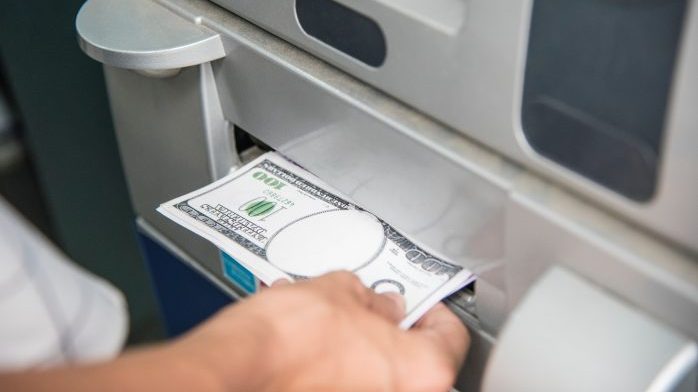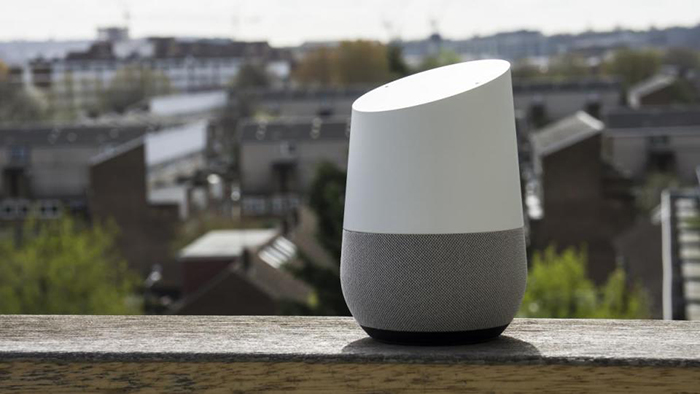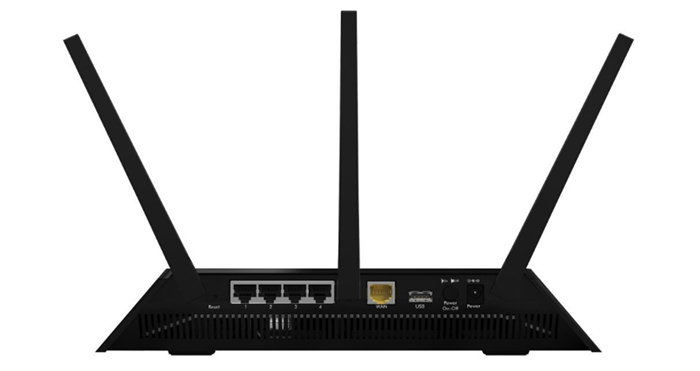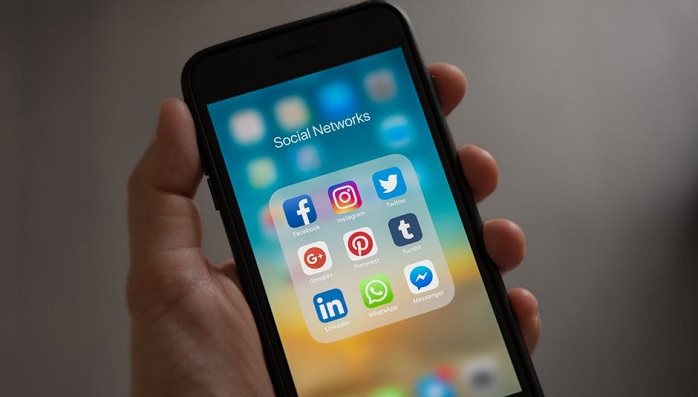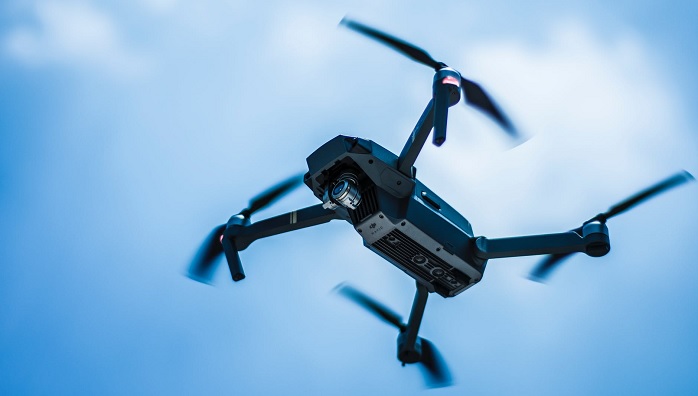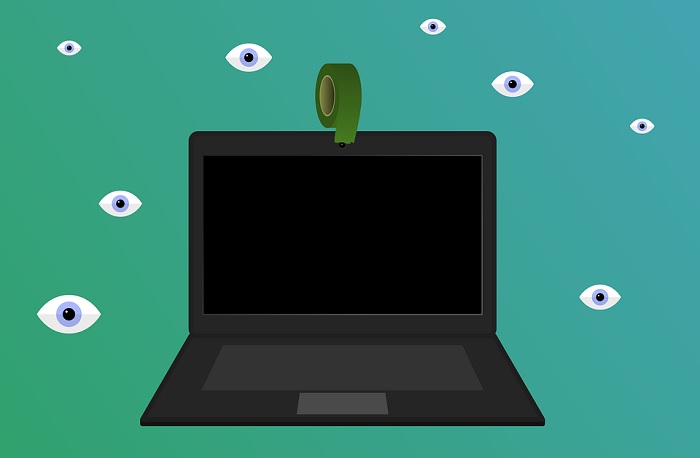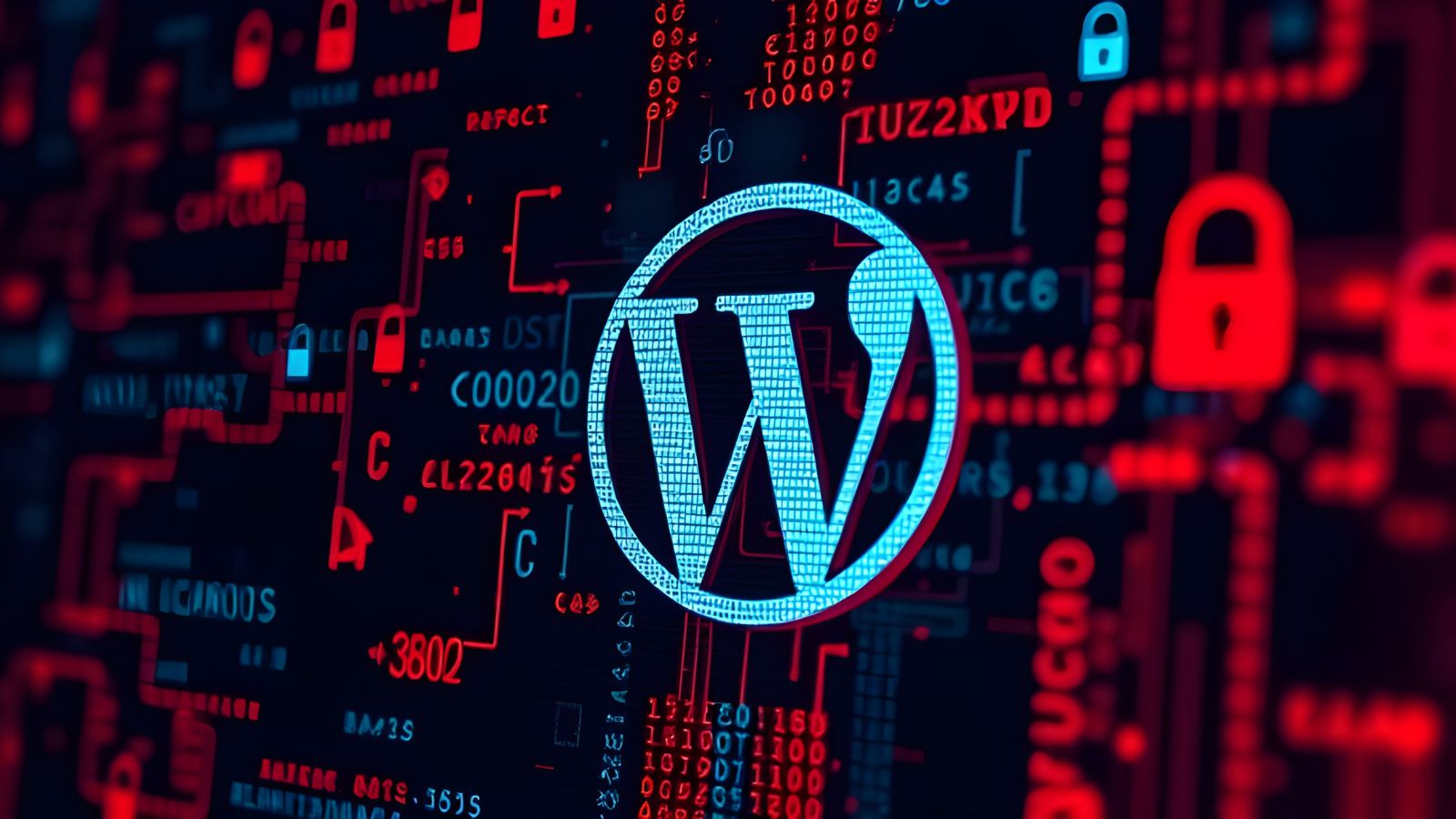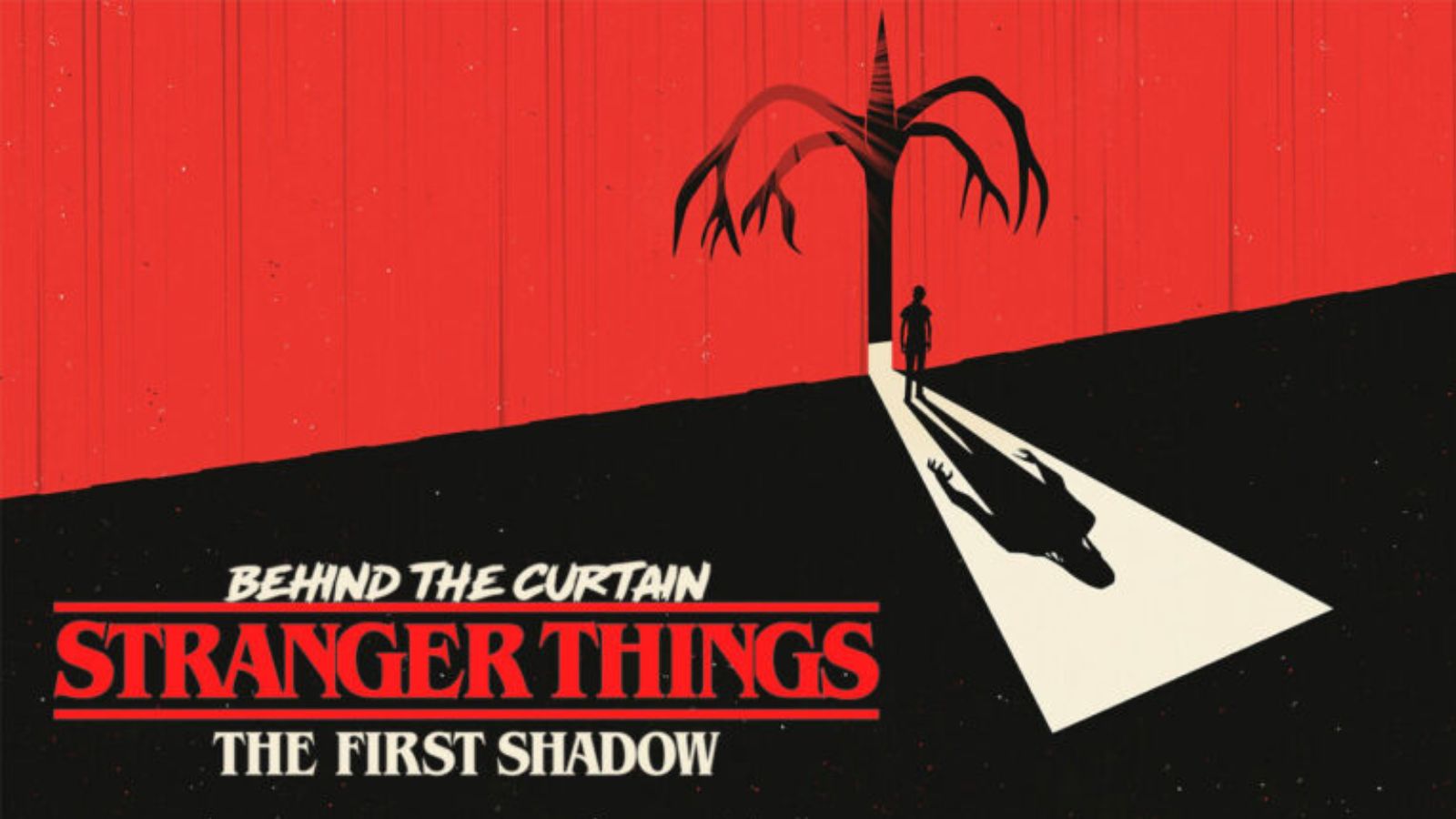
When you purchase through links on our site, we may earn an affiliate commission. Here’s how it works.
These are the Privacy Threats We Face Everyday
There can be little doubt that our privacy is under attack. In the past, you could at least come home at the end of the day and relax in the knowledge that no one is watching. That privilege seems to be eroding.
It’s a serious issue because privacy is a fundamental human need. Having no privacy is a source of torment and anxiety. You might argue that you could fix this by making people unaware of the fact that their privacy is being eroded. To be honest, this sort of stealth privacy breach is becoming more and more commonplace.
However, privacy is not just about feeling like you are not being watched. There is a moral aspect to it too. If someone installed a camera in your home and watched everything you do, it doesn’t matter that you don’t about it. It’s the moral principle at work that really matters.
In this modern, internet-powered world there are plenty of these stealth methods of spying on people. The only way you can do something about it is if you know they exist. We shouldn’t just accept involuntary surveillance as a fact of life, but resist the endless push into our private lives by those seeking control and profit. Here are some of the most prominent ways our privacy is being threatened every day. I’m sure there are many more we don’t even know about, but it’s a good start.
Cameras, Card Machines, and Digital Footprints
As the world moves away from analog systems and digitizes absolutely everything, it’s becoming harder and harder to do anything in private. There are cameras everywhere in urban areas and if you use your credit card at an ATM or look up anything on the internet, there’s a trail leading right back to you.
It’s one thing to say that we have the right to privacy, and another to make it possible to enforce that right. In a digital cashless society, your choices are privacy or starvation. It’s important to know that you are leaving breadcrumbs wherever you go, but until some serious legal reform and updating, there’s not too much you can realistically do about it.
In recent years the invention of cryptocurrency and the blockchain technology that makes it possible has rekindled the hope that we can have some semblance of financial privacy. However, it’s still early days for the blockchain.
Data Mining and Artificial Intelligence
Everything you do online or in contact with a digital system can now be recorded and aggregated into massive piles of raw data. In theory, this is all anonymized and sort of heaped together in a virtual pile.
However, advances in artificial intelligence and powerful algorithms mean that your personal life can be invaded and manipulated by predictions of what you do. Companies like Google and Facebook make their money by using your personal info and that of millions of others.
AI can discover insights in these data which helps them nail you with product placements and advertising that hounds you no matter where on the web you go.
One of the scariest stories I have seen in terms of data-mining driven privacy breaches happened in 2012. A young woman who shops at retailer Target had her pregnancy status outed thanks to an internal algorithm. Target can predict that someone is pregnant based on their shopping patterns and then sends them coupons at just the right time. This might sound convenient, but it’s actually very worrying! In this case, it caused some family ructions, but it could have been worse.
The Internet of Things
You’ll start hearing about the “internet of things” or IoT more and more as time goes by. It’s actually not a hard concept to understand. It’s basically the total of internet connected devices that aren’t computers or smartphones. We’re talking fridges, TVs, shoes, cups, toys. Honestly, the list just goes on and on. The idea is that all these connected devices can talk to each other, talk to the internet and generally work together to make your life easier.
In practice, there has been a flood of cheap IoT devices from the far east and other relatively unregulated places that haven’t given much thought to the security of their products. Which means that plenty of entry-level IoT hardware acts as a weak sport that hackers can exploit.
Even if you are using secure IoT, you’re still providing many new data collection avenues for the companies that make them. IoT is still making its way into mainstream life, so expect lots of ups and downs when it comes to their privacy impact in the future.
Open WiFi Networks
In most developed countries, free public WiFi is becoming commonplace. That’s great if you don’t want to spend a fortune paying for mobile data, but it comes with some major privacy issues.
The provider of the open network can also track and store what sites you are visiting and other personal information about your internet habits. Using incognito mode in your browser will do nothing to prevent this.
Open networks also have no security, which means that anyone else on these networks can intercept and store all the information you send and receive. If any of that information is unencrypted other people on the network can read it. There’s also a chance that your device can be attacked directly on open networks, so really they are terrible for privacy.
We also have to include password-protected WiFi where the password is given away. Such as at a coffee shop with free WiFi. It amounts to exactly the same things as an open WiFi network.
The only real solution is to install a VPN service like ExpressVPN or something similar on your devices. This creates a protected and encrypted tunnel through the net which prevents eavesdropping. No one on the network with you will have any ideas about what you are doing. Check out my article on public WiFi safety for more info.
Social Media
Since platforms like Facebook and MySpace have launched people in the mainstream so society has embraced it. Grabbing it with both hands and made it an integral part of their daily lives. We willingly upload everything about ourselves onto social media and then make it easy for anyone out there to look this information up.
House burglars, stalkers and criminals of every stripe have found that social media is an easy way to get the information needed to commit their heinous acts. That’s before we get to the above-mentioned issue of the actual social media companies selling private info. As a general rule social media is absolutely toxic for privacy. If you are going to use it you’re better off doing so anonymously.
Government Mass Surveillance
It’s not news that government spies on its people. What is news is how advanced and personal their methods are getting. Before everyone had a computer in the house or an internet connection, law enforcement could get warrants to wiretap specific people or watch and record someone without their knowledge.
With the rise of encrypted apps like WhatsApp and Signal, their job has become a lot harder. In other ways, they are more capable than ever. For example, phone lines can be monitored by a supercomputer waiting for certain keywords like “bomb” to be said. Then it immediately records and stores that conversation. Most of these end up being false positives, which raises some pretty big privacy violation flags.
Add to it new systems such as drones and cameras combined with facial recognition and you have the makings of an Orwellian state.
More worrying than any of this are revelations by Edward Snowden that government agencies such as the CIA are capable of hacking devices such as smart TVs to spy on people in their homes. We don’t know how much truth there is to this allegation. Obviously, the government itself won’t own up to it either way. It’s plausible, but we may never know.
Corporate Mass Surveillance
It’s not just governments that like to spy on their citizens. Big and small corporations now find it easier to keep tabs on their employees than ever. If you are using a work computer there might be invisible tracking software installed on it to ensure that you aren’t goofing off. Ditto goes for your work internet, which probably runs through a proxy server. This means that every site you visit is saved in a log.
The contents of your work emails, network drives, and any other company resources are an open book to the company bosses. So be very careful, if you ever butt heads with management they can pull out reams of things with which to smack you down.
If you use your own mobile internet connection and computer for non-work-related purposes along with a VPN, then you’re pretty insulated from this issue. However, never underestimate how far companies will go to keep an eye on what their workers.
Hackers and Weak Databases
It seems that with every passing week we hear of another major data breach. Even worse, some of these happened years ago, with the company in question only coming clean now. These database breaches might leak incredibly private information to the hackers that perpetrate the attack. We entrust our private info to online companies without a thought, but there’s no guarantee they know what they are doing.
This means that every time you entrust personal information to an online service you have to trust that they will treat it with the right level of security. It’s best if you only give the absolute minimum personal information as a general rule. If it’s not a site with a proper security budget (e.g. Google, Microsoft, etc) you may even want to refrain from using your real name.
Malware, Hackers and Social Engineering
It turns out that one of the greatest threats to our privacy is us! By that, I mean human beings are often the weakest link in the privacy measures we take. It’s usually easier to fool a human being than it is to break a strong security measure such as encryption.
For example, malware such as viruses is mainly installed on the target’s computer by fooling the user into running the software themselves. While anti-virus software has gone a long way to making this problem much smaller, they aren’t effective 100% of the time. The creators of malware are also in a constant arms race with security software developers.
These attacks that aim to fool the target from part of a larger set of techniques known as social engineering. This approach uses psychological knowledge to get compliance from people who have access to secure systems or information that could be used to gain that access. The only way to combat this type of privacy threat is to educate users. Becoming security literate and developing a healthy sense of skepticism would virtually eliminate this issue. However, the average person has no special interest in doing the work needed, so it falls to developers and security specialists to try and make up for that weak human factor.
People Don’t Take Privacy Seriously
Which brings us to the final primary threat to our privacy - our overall attitude towards privacy as a society. Privacy is not a concept that has been consistent with us over the course of human history. What it means is different from one culture to the next. However, in the modern Western culture, we have established privacy as a right that applies to everyone. It doesn’t matter whether you are rich or poor, you have the right to privacy.
The problem might have to do with the fact that we have taken our privacy for granted. It’s a right that someone had to fight for and sometimes die for. Some countries which don’t have strong privacy rights, you can be sure that those citizens are acutely aware of their weak privacy.
In recent years, there has been an attitude that if you have nothing to hide you shouldn’t be worried about various entities prying into your life. A lot of this is driven by the sheer convenience and social pressure of certain technologies. In the end, people are willing to compromise their privacy. Especially in order to be trendy or because they feel what the technology brings to their lives is worth it. Personally, I think we don’t take privacy seriously enough and that is possibly the greatest threat to the privacy of all.
A Strange New World
The comedian Yakov Smirnoff is often credited with a type of joke known as the “Russian reversal”. They go something like this; “In America, you can always find a party, in Soviet Russia, the party can always find you!” I feel like we’re living in a sort of reversal world now. In the old days, you watched TV. Now the TV watches you!
It’s particularly bad because a privacy breach is subtle. Much more subtle than a guy sitting in a tree outside your house with a camera. It’s almost invisible to us until the day someone uses the information they have stolen from you against you.
We are however fighting back. End-to-end encryption and services such as the Tor network help claw back privacy. At least in those life-or-death situations that really matter. The fight for privacy is one that can never end. As soon as you stop fighting for it, you lose it. Like most rights, you have to actively enforce it or it goes away quietly. Knowing is half the battle. Now that you know how your privacy is threatened you can help fight for the cause.
What do you think about the privacy threats we face? Let us know in the comments below. For more interesting picks follow TechNadu on Facebook and Twitter.

